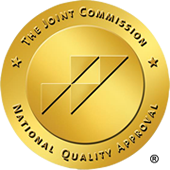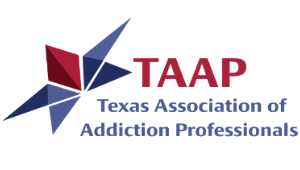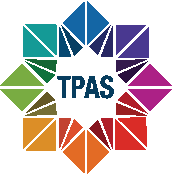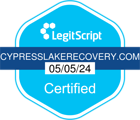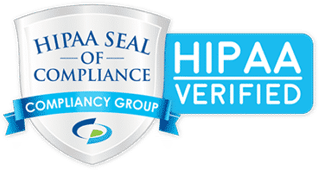Aetna Addiction Treatment Coverage in Texas
Aetna is one of the largest health insurance providers in the United States, and offers coverage for addiction treatment. This includes drug and alcohol addiction rehab. Many policyholders are unaware of the extent of their benefits. But Aetna drug rehab typically covers various levels of care, such as detoxification, inpatient rehab, outpatient programs, and aftercare services.

Coverage details depend on the specific plan, so it’s essential to review your policy or contact Aetna directly. But under the Affordable Care Act (ACA), mental health and substance use disorder treatments are classified as essential health benefits. Factors like deductibles, copays, and out-of-pocket maximums can influence the cost to the patient. Aetna often works with in-network facilities to minimize expenses, making high-quality Aetna drug rehab more accessible.
If you or a loved one is struggling with substance abuse, don’t let uncertainty about insurance prevent you from seeking help. At Cypress Lake Recovery, we help patients navigate their Aetna benefits to ensure they receive the best possible care without unnecessary financial stress. Our team assists with verifying coverage, understanding limitations, and maximizing insurance benefits for addiction treatment.
Does Aetna Cover Drug Rehab?
Aetna usually covers drug rehab, but the extent of coverage can vary by the plan. Most Aetna policies include benefits for detox, residential treatment, partial hospitalization programs (PHP), intensive outpatient programs (IOP), and standard outpatient therapy. However, pre-authorization may be required before starting treatment.
Aetna may categorize rehab services under behavioral health benefits, meaning that they would follow similar coverage rules as mental health treatments. Factors influencing that coverage may include:
- Medical necessity: Insurance providers typically require documentation from healthcare providers proving that rehab services are medically necessary for treating the patient’s substance use disorder. This documentation typically includes clinical assessments, diagnosis codes, and a detailed treatment plan showing why inpatient or outpatient care is essential for the person’s recovery.
- Facility’s network status: Coverage levels are typically higher for in-network facilities, while out-of-network providers may result in increased out-of-pocket costs for the patient. Many insurers (including Aetna) encourage using in-network providers by covering a larger percentage of costs and simplifying the claims process.
- Plan type (HMO, PPO, EPO): PPO plans offer more flexibility in choosing providers, while HMO plans may require a referral from a primary care physician. EPO plans often fall in between, providing some out-of-network coverage in emergencies but generally requiring patients to stay within the approved provider network.
To confirm your benefits, contact Aetna or work with our admissions specialists who can verify coverage on your behalf. At Cypress Lake Recovery, we’re in-network with Aetna, allowing us to provide affordable, high-quality addiction treatment. We handle the insurance verification process so you can focus on recovery.
Contact Our Admissions Team Today
Understanding Aetna Drug Rehab Coverage
- Preventive care, including early intervention programs.
- Active treatment includes detox, inpatient, and outpatient rehab.
- Continuing care covers aftercare and relapse prevention programs.
Each of these tiers has different coverage rules, which may vary depending on your Aetna plan. Preventive services often have $0 copays under ACA-compliant plans, while active treatment coverage may require you to meet a deductible first. Continuing care (such as therapy sessions and aftercare treatment) may have a limit on coverage. To determine your specific coverage, you will need to check your specific plan.
Testimonials
![]()
![]()
![]()
![]()
![]()
Regina
I am so happy that I chose Cypress to begin my recovery. I have suffered for years from depression, anxiety, panic disorder, and PTSD. The programs that are offered here at Cypress have been truly phenomenal in helping me recover. I also appreciated the professional staff that are here on duty 24/7, which helps create a safe environment. Cypress Lake Recovery uses effective “one on one” methods that meet each person’s individual needs because they evaluate and have a better understanding of your personal traumatic experiences. Thanks Sabino, I am truly grateful to you and the Cypress family.
![]()
![]()
![]()
![]()
![]()
J.A.
A beautiful facility! Staff sets the tone and kindness that residents easily follow. Thank you, Cypress Lake Recovery!
![]()
![]()
![]()
![]()
![]()
Pamela
The program at Cypress Lake Recovery works! I emerged from an accumulation of unrecognized emotions, issues of trust, and unresolved grief and loss. 35-days of effective integration of customized quality therapy reconnected my mind, body, spirit, and I am worth it! I had masked emotions and hurtful events for decades with alcohol. At Cypress Lake Recovery I safely focused deep within to unleash harmful secrets and self-degradation. Tools of recovery were practiced, not just presented. Integrative therapies were tailored to my circumstances, thus were effective. This residential program is like no other. For me, Cypress Lake Recovery delivered what was professed. I am forever grateful for this gift of healing.
![]()
![]()
![]()
![]()
![]()
Mike
Life changing experience. Wonderful staff. Wonderful program. Thanks for everything!
![]()
![]()
![]()
![]()
![]()
Darcy
It was great to begin my recovery in a group environment with so many knowledgeable nurses, therapists, BHT’s, and others around for support. The equine therapy, challenge course, family week, and daily therapies all work together seamlessly, allowing me to leave Sabino as a healthier and stronger person!

Treatment Options for Addiction Recovery
Medically assisted detox provides 24/7 monitoring by healthcare professionals who use medications (when necessary) and supportive care to ensure a safe and comfortable withdrawal process. This level of care is particularly important for alcohol, benzodiazepines, and opioids, where withdrawal can be dangerous or even life-threatening without proper medical supervision. Detox typically lasts for 5-7 days and serves as the first step before transitioning to a rehab program for comprehensive treatment.
Medical detox programs may include:
- Medication-assisted treatment (MAT) for withdrawal symptoms
- Nutritional support to restore physical health
- Psychiatric evaluation for co-occurring disorders
Residential treatment offers a highly supportive environment with therapy, medical supervision, and peer support to help individuals focus entirely on recovery without outside distractions.
Patients live at the facility for 30 to 90 days (or longer) and participate in structured daily schedules that include individual counseling, group therapy, life skills training, and holistic therapies. This immersive approach is especially effective for those with severe addictions, dual diagnoses, or those who have relapsed after outpatient treatment.
Our residential rehab program includes:
- Nutritional education that teaches patients how to help their bodies recover from the physical effects of addiction through healthy eating.
- Relapse prevention skills help the individual focus on maintaining sobriety and illustrates the steps they can take in case of a relapse.
- Life skills courses help enable individuals to have a smooth transition back to society.
Outpatient therapy works well for those with stable living environments, mild to moderate substance use disorders, or as a step-down after completing higher levels of treatment (like residential rehab or a PHP). Many outpatient programs offer evening and weekend sessions to accommodate work or school schedules while providing continued accountability in recovery.
The right treatment plan depends on the severity of addiction, co-occurring disorders, and personal needs. Our programs integrate clinical therapies, peer support, and relapse prevention strategies. If you’re ready to start recovery, we can help determine the best Aetna-covered treatment path for you.
Therapy Options for Addiction Recovery
Cognitive behavioral therapy (CBT) helps patients identify and change destructive thought patterns. It teaches practical tools to recognize triggers and develop healthier responses. CBT is particularly effective for preventing relapse by teaching practical strategies to challenge cravings and negative self-talk.
DBT focuses on enhancing emotional regulation and coping skills. It incorporates mindfulness techniques to help patients tolerate distress without substances. DBT is ideal for individuals with co-occurring disorders like borderline personality disorder, as it may help with managing intense emotions without substance use.
This method encourages commitment to change through guided conversations. Therapists use open-ended questions to help patients articulate their own reasons for recovery. MI has proven particularly successful in engaging resistant patients in early treatment stages.
Family therapy repairs relationships and builds a supportive home environment. It helps with educating family members about addiction as a disease while establishing healthy boundaries. By addressing codependency and improving communication, it can help promote a healthier dynamic and help build up the family as a support system against relapse.
EMDR can help to address underlying post-traumatic stress disorder (PTSD) or past trauma contributing to addiction. This approach is designed to help a person reprocess traumatic memories so that they no longer drive substance use as a coping mechanism. The bilateral stimulation technique used in EMDR helps individuals reprocess traumatic memories with less emotional intensity. Many patients report reduced cravings after resolving trauma that previously triggered substance use.
At Cypress Lake Recovery, we use a combination of these therapies to promote lasting recovery.
The Importance of Verifying Insurance Coverage for Addiction Treatment
Key steps in verification include:
- Confirming in-network vs. out-of-network benefits
- Checking if pre-authorization is required
- Understanding coverage limits (e.g., number of days covered)
At Cypress Lake Recovery, we handle this process for you, ensuring a smooth transition into treatment. By verifying coverage early on in the process, the person entering the treatment program can primarily focus on their recovery without lurking fear of future cost. There’s also less temptation to leave a treatment program early if the person knows that their treatment is completely covered.
Cypress Lake Recovery is In-Network with Aetna Insurance
Let us help you start your recovery journey with the support of your insurance. Call now to verify your benefits and begin treatment today.
Nationally Recognized & Accredited
